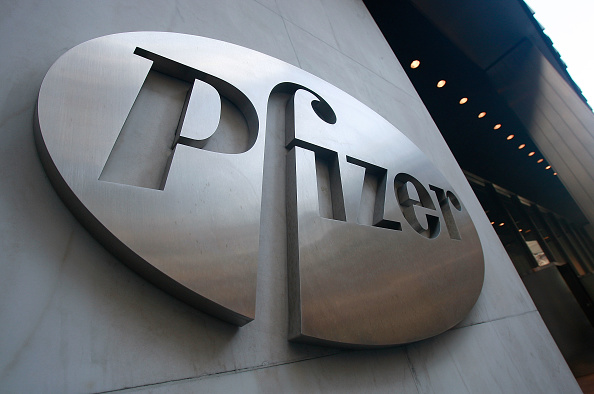Pfizer’s revenue from pharmaceuticals declined Pharmaceutical giant Pfizer is getting into the health care delivery business.
The company announced on August 27 the launch of PfizerforAll, an initiative to combine health care services, medication, and vaccinations through an online platform. Pfizer leads the world in pharmaceutical sales.
PfizerforAll will work within the existing health care system to make “managing everyday health quicker and more convenient for millions of Americans,” a Pfizer press release stated.
The company is marketing the program to patients seeking vaccines and treatment for migraines, discounts on Pfizer medications, and an “easier” way to connect with a health care provider.
PfizerforAll promises same-day appointments with independent health care professionals and home delivery of prescription medicines, over-the-counter treatments, and diagnostic tests. Patients can also access vaccines by appointment locally through the site.
“As one might expect, the emphasis is on selling vaccines and Pfizer meds,” said Dr. Jane Orient, executive director of the Association of American Physicians and Surgeons. “It promises an ‘independent doctor,’ but for whom is the doctor working?”
Public Dissatisfaction
Pfizer cites a recent poll by the American Academy of Physician Associates in which most respondents said U.S. health care is too complicated and time-consuming and does not meet their needs. A majority of those surveyed also showed interest in increased digital management of their care.
“People often experience information overload and encounter roadblocks when making decisions for themselves or their family in our complex and often overwhelming U.S. healthcare system,” said Aamir Malik, a Pfizer executive vice president and chief U.S. commercial officer, in a news release. “This can be extremely time-consuming and lead to indecision or inaction—and as a result, poor health outcomes.”
Revenue Pressure
Other private companies have tried to gain a slice of the health care market through online platforms.
In 2023, Whole Foods founder John Mackey launched Love.Life, a “health and wellness company” providing access to online practitioners licensed across the states through a “cash-only” service. That same year, Amazon acquired One Medical, a large, membership-based, primary care company offering same-day virtual care.
by 42 percent in 2024, while other top 10 drug companies had minor dips or increases in sales. Similarly, vaccine-focused Moderna has suffered stock drops.
New Avenues for Profits
Drug makers have been struggling to justify massive investments in new treatments for common diseases. In 2009, Pfizer paid $2.3 billion to settle civil and criminal charges related to the misbranding of several drugs and giving kickbacks to providers.
“Since then, the company has discovered that the most profitable substances are not pharmaceutical products, but vaccines for which the company bears no product liability and for which it can easily persuade the governments of the world to foot the bill,” wrote blogger John Leake in a September 11, 2024 post with Peter McCullough, M.D. at Courageous Discourse.
Funneling patients toward Pfizer purchases and matching patients with providers on the PfizerforAll platform is a way to broaden the company’s reach, says Twila Brase, co-founder and president of the Citizens’ Council for Health Freedom.
“This is just a different angle on the corporatization of care, a marketing strategy,” said Brase. “This is Pfizer trying to snatch part of the health care delivery market.”
Capitalizing on Dysfunction
Many Americans are looking for nontraditional access to health care as the health care market remains plagued by provider shortages, limited access, and rising costs.
“Because of the corporatization of health care—so many doctors are corporatized, on quotas, and scheduled—and Obamacare has consolidated health care, there are just fewer slots for patients to fit into in a doctor’s office,” said Brase. “So, people are looking for a quick fix for certain conditions and certain situations.”
The Pfizer initiative does not help make health care more personal, says Brase.
“This is an entire movement to an impersonal Pfizer from a personal relationship with a doctor who knows you,” said Brase. “It’s more marketing, but Pfizer is also finding a niche they can exploit because people are dissatisfied with the timeliness of care. This is a pilot program for them, and if they are successful, they will [expand].”
Ashley Bateman (bateman.ae@googlemail.com) writes from Virginia.





















